Planning and preparing the future for your loved ones once you pass away can be an emotionally draining experience. It’s uncomfortable to be faced with mortality and to think about what life would be like for friends and family after your death. Still, taking the necessary steps now can actually avoid confusion and complication for your loved ones in the future.
Part of the estate planning process is recognizing what probate is and how it could factor into your final wishes regarding the distribution of your property, including financial considerations. Those assets that aren’t required to go through the probate process can more quickly be distributed to beneficiaries. That means family members who depend on your support won’t be left in the lurch. Use this information to glean a better understanding of probate and non-probate scenarios.
Know the Difference
All assets that are solely owned by you are eligible to go through the probate process after you pass away. This includes real estate, vehicles, and similar. It’s important to note, however, that not all assets must go through probate. Jointly-owned property can revert to sole ownership of your spouse or loved one upon your death.
Many people choose to enact a living trust to avoid any property or assets going through the probate process. These trusts can be modified and updated at any time during your life. After your passing, decisions involving the trust will be considered by a trustee you’ve named.
If all of this sounds overly-complex or frustrating, it’s a good idea to partner with a trusted and reputable probate attorney in Daytona Beach. This advocate can help you both make sense of the estate planning process and ensure your property and loved ones are legally protected after you pass.
Protect Yourself and Loved Ones
As mentioned, probate assets are those that are owned by the decedent. Common probate assets include:
- real estate property
- commercial property and interests
- personal property (jewelry, vehicles, furniture)
- bank accounts, life insurance policies, and similar
On the other hand, common non-probate assets involve:
- jointly-owned property that is titled as joint owner with rights of survivorship
- bank/brokerage accounts jointly held (or payable/transferrable upon death)
- retirement accounts with named direct beneficiaries
- property held in a trust
- life insurance accounts that list another person as the main beneficiary
Remember that your will doesn’t dictate what property is probate or non-probate, nor can it control the distribution of non-probate property. This is another reason why it’s wise to team with an estate planning attorney who can assist you in making the most sound asset distribution choices for you and your family.
Find a Reliable Legal Partner
Even when you have a solid plan for the future and your desired estate planning outcomes, challenges can and do happen in court. By partnering with an estate planning attorney in Ormond Beach, you can plan for any potential challenges.
For years, we’ve been known as the go-to resource for a variety of legal needs. That includes estate planning, family law, divorce, and collaborative divorce, probate, and guardianship. Our diversity of practice areas, attention to detail, and impeccable client relations have helped secure our reputation as a premier Daytona Beach, Florida attorney. Contact us today to learn more about the probate procedure, and how you can start a plan to protect your loved ones.


